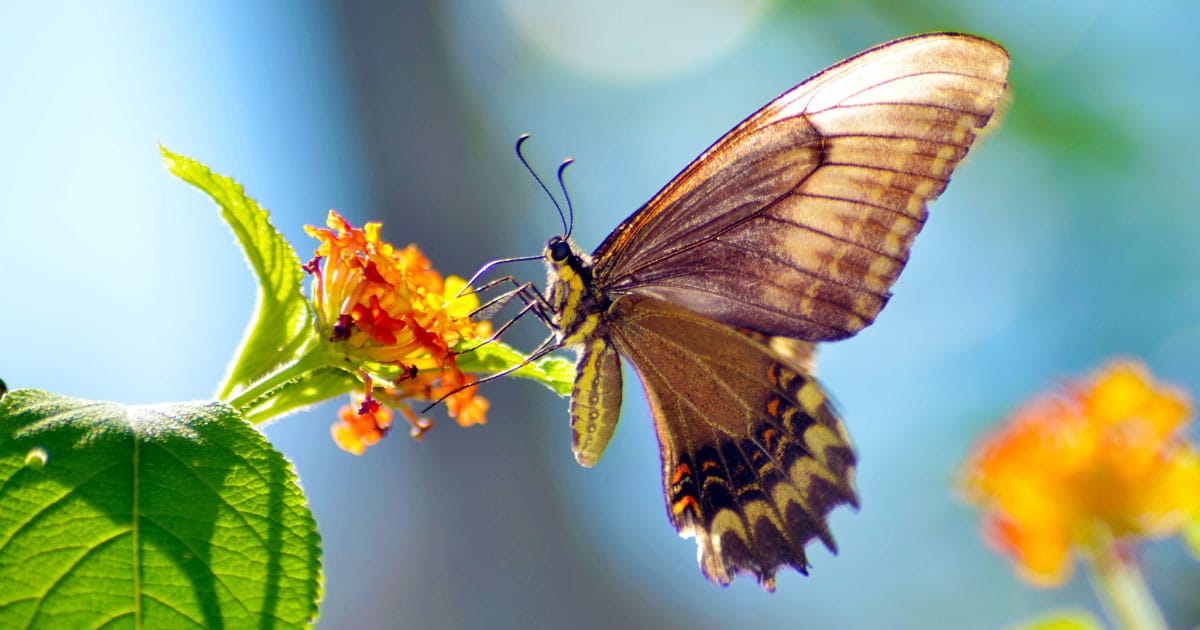Native plants are species that have evolved in a particular region over centuries, adapting to the local soil, climate, and wildlife. In contrast, gardens and agricultural lands often face pest issues with invasive insects damaging plants and reducing yields.
Using native plants as natural pest controllers is an eco-friendly solution to these problems. This article explores how native plants can be utilized as biological control agents to manage pests, promoting a balanced ecosystem.

Traditional Pest Control
Traditionally, pest control primarily relied on chemical pesticides, which, although effective, often pose environmental and health risks. Over time, thanks to organizations like Garden for Wildlife and the National Wildlife Federation, the awareness of natural pest control methods has grown. These methods include using organisms like insects, birds, or other plants to manage pest populations, minimizing the reliance on chemicals.
Pest Control through Native Plants
Native plants employ various mechanisms to aid in pest control, which can be harnessed to protect gardens and agricultural lands from harmful pests. These mechanisms operate within a natural framework, promoting a balanced ecosystem. Let’s look at the four primary ways native plants contribute to pest management. Additionally, services like Critter Stop can be integrated into this framework, offering humane and effective solutions to manage unwelcome critters.
Attract Beneficial Insects
Native plants are known to attract beneficial insects such as ladybugs. These insects are predators of common garden pests like aphids and caterpillars. By drawing these natural predators, native plants help reduce the population of harmful pests naturally, minimizing the need for chemical interventions. Some native plants also attract birds and bats, which will also help keep garden pests at bay.
Habitats
Providing habitat is another crucial way native plants contribute to pest control. They offer shelter, breeding grounds, and sometimes food to beneficial insects and other animals, encouraging their presence and proliferation. A robust population of beneficial wildlife in your garden ensures a natural and ongoing pest control process, helping maintain a balanced ecosystem within the garden.
Trap Crops
Some native plants act as trap crops, luring pests away from more valuable or susceptible plants. The pests are drawn to these trap crops, keeping them away from other nearby plants. Once the pests are on the trap crops, they can be easily managed or removed, protecting the surrounding vegetation.
Allelopathy
Allelopathy is a biological phenomenon where plants release chemicals into the soil to inhibit the growth of other plants and pests. Some native plants possess allelopathic properties, releasing substances that deter pests or inhibit their growth. This natural form of pest control can significantly reduce the population of harmful pests, contributing to a healthier, more resilient garden or agricultural landscape.
Benefits of Using Native Plants for Pest Control
Utilizing native plants for pest control presents a range of benefits. Environmentally, it reduces the dependency on chemical pesticides, promoting biodiversity. Health-wise, it lowers the exposure to harmful chemicals for humans and other non-target organisms. Economically, employing native plants is cost-effective compared to purchasing and applying chemical pesticides.
Challenges and Solutions
However, the practice faces challenges like a lack of awareness and accessibility to native plants. Education on the benefits and methods of using native plants for pest control is crucial. Additionally, making native plants more accessible for this purpose is necessary. Ongoing research to identify and propagate effective native plant species for pest control is also essential to further promote this sustainable practice.
Get Rid of the Pests…Naturally
Native plants offer a sustainable and eco-friendly approach to pest control. The practice fosters a balanced ecosystem, reducing the reliance on harmful chemicals. Gardeners, farmers, and policymakers are encouraged to explore and promote using native plants as a viable solution for managing pest issues in a more natural and environmentally responsible manner.
